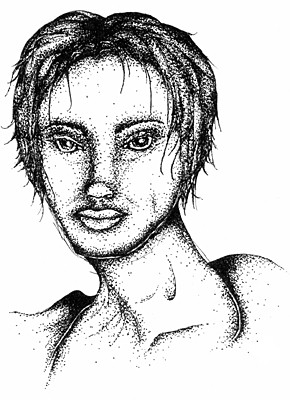All Nonfiction
- Bullying
- Books
- Academic
- Author Interviews
- Celebrity interviews
- College Articles
- College Essays
- Educator of the Year
- Heroes
- Interviews
- Memoir
- Personal Experience
- Sports
- Travel & Culture
All Opinions
- Bullying
- Current Events / Politics
- Discrimination
- Drugs / Alcohol / Smoking
- Entertainment / Celebrities
- Environment
- Love / Relationships
- Movies / Music / TV
- Pop Culture / Trends
- School / College
- Social Issues / Civics
- Spirituality / Religion
- Sports / Hobbies
All Hot Topics
- Bullying
- Community Service
- Environment
- Health
- Letters to the Editor
- Pride & Prejudice
- What Matters
- Back
Summer Guide
- Program Links
- Program Reviews
- Back
College Guide
- College Links
- College Reviews
- College Essays
- College Articles
- Back
My Definition
This past fall, I was excited for Homecoming because it was an opportunity for me to dress up and put effort into my physical appearance, unlike my daily ritual. This was important to me because my Mom’s semi-frequent remarks about how greasy my hippy hair looks and how shapeless my body appears in my drop-crotch sweats make me conscious of my less-than pulled together physical look. When I finished donning my sleeveless dress, though, my brother intently stared at my triceps for a while. Instead of immediately complimenting my uncharacteristically polished look, he proceeded to tell me that I should “tone down my muscles.” He told me that I looked like a “dude” with my buff arms and flat chest. I initially shrugged him off, like I’ve done so many times before. However, the more I thought about it, the more I realized that his comment, which stripped me of my girliness when I felt my most girly, was actually criticism.
I have done thirty pushups a day for two years, and I have never failed to meet this standard. To me, my triceps represent my physical strength and consistent dedication as an athlete. Nevertheless, to my brother, they represent my manliness. Sometimes my very French mother jokes around and says that I’m not a real girl because I hate shopping and could care less about whether wearing running shoes with jeans is stylish. This doesn’t bother me because I know that she is playful and simply wishes that I shared her value for fashion, as enforced by French societal norms. However, all of these comments relating to my physical appearance and my lack of “apparent” femininity are so objective. Thesaurus.com has docile, kind, and soft listed as synonyms for the word feminine. Is this to imply that, by societal standard, women cannot be strong and tough if they wish to be womanly? The more my brother commented on my apparent “masculinity,” the more I questioned my own “femininity,” even though society’s expectation of how a girl should look should never undermine what girlishness truly means to me.
I like to think that I am mentally strong. None of these superficial, and sometimes degrading, comments ever tear down my self-confidence. Despite my brother’s opinion, I am proud of my triceps because they give me an edge over other runners and they are unique to me. However, what he induced within me was annoyance. Why should “masculine” be the adjective used to describe muscular females, and why should it have a negative connotation? I believe that we, girls, should have the power to define our own femininities with the attributes that make us individuals. For me, this means strong arms that are representative of my self-discipline and robustness, not “manliness.” For me, this means staying true to my personal identity despite the pressure emitted by the people around me. I believe in my triceps because they represent my confidence to defy society’s predetermined image of what “feminine” should look like.

Similar Articles
JOIN THE DISCUSSION
This article has 0 comments.

I originally wrote this for a school personal essay. I felt incredibly connected to it, though, so I developed it into a college essay. I think it accurately represents my search for identity as a young teenager, and my attitude towards society's oppressive standards. I hope that readers of my article will easily relate to it, in personal and unique ways, and develop a similar perspective about social constraints that impede the development of genuine identity.